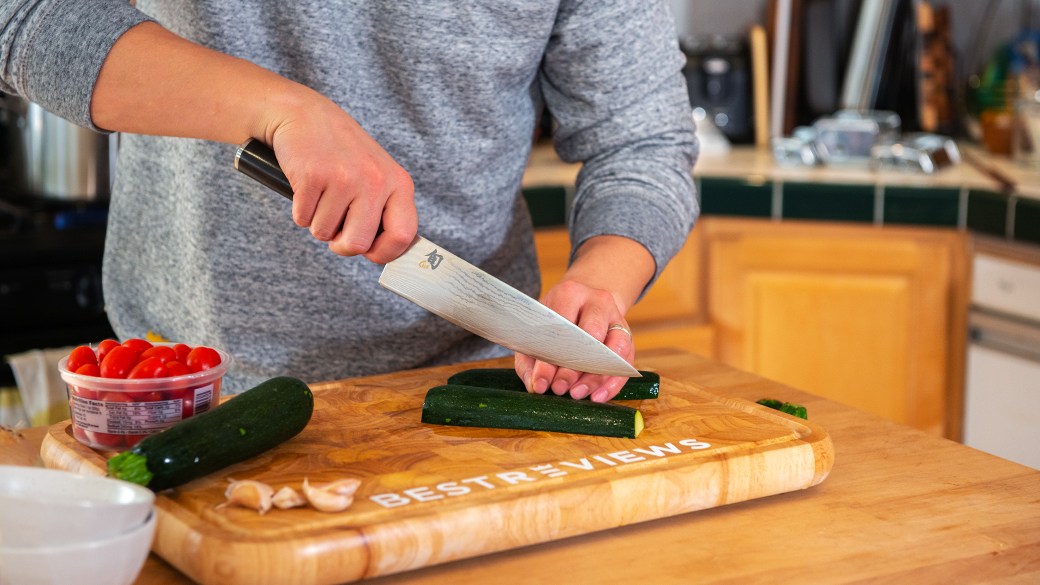When it comes to culinary excellence, the choice of kitchen tools can make all the difference. Among these, the German vegetable knife stands out as a favorite for many chefs and home cooks around the world. This German vegetable knife guide will help you understand why it is a preferred choice among culinary experts and how you can make the most of it in your kitchen.

The Legacy of German Knives
German knives have a long-standing reputation for quality and precision. Known for their robust construction and exceptional performance, they are a staple in both professional and home kitchens. The craftsmanship of German knives dates back centuries, with places like Solingen, often referred to as the ‘City of Blades,’ being at the heart of this tradition. You can learn more about the rich history and legacy of Solingen in this article.
Understanding the German Vegetable Knife
The German vegetable knife is specifically designed for slicing, dicing, and chopping vegetables with ease. Its blade is typically shorter and wider compared to other knives, providing greater control and precision. This design is perfect for handling various types of vegetables, ensuring that each cut is clean and efficient.
Features of a German Vegetable Knife
One of the defining features of a German vegetable knife is its blade thickness. Unlike Japanese knives, which are often thinner, German knives offer a sturdier blade that can handle tougher vegetables with ease. For more insights into the blade thickness of German knives, visit this resource.
Blade Material and Durability
German knives are typically made from high-carbon stainless steel, which provides a balance of sharpness and durability. This material is resistant to rust and corrosion, ensuring that your knife stays in top condition even with regular use.
Using Your German Vegetable Knife
To get the most out of your German vegetable knife, it’s essential to know how to use it properly. This includes understanding the correct grip, cutting techniques, and maintenance practices.
Proper Grip and Cutting Techniques
Holding the knife correctly is crucial for both safety and efficiency. A firm grip on the handle, with your index finger resting on the spine of the blade, provides better control. When cutting, use a rocking motion to slice through vegetables smoothly.
Maintaining Your Knife
Regular maintenance is key to keeping your knife sharp and effective. This includes honing the blade to realign its edge. For a detailed guide on how to hone German knives, check out this guide.
Comparing German and Japanese Knives
While both German and Japanese knives are popular in kitchens worldwide, they have distinct differences. German knives are known for their durability and strength, making them ideal for tougher tasks. In contrast, Japanese knives often feature a thinner blade for more delicate cutting. For more on the differences between Japanese and German steel, visit this blog.
Choosing the Right German Knife for You
Choosing the right German knife depends on your specific needs in the kitchen. Whether you’re a professional chef or a home cook, understanding the different types of German knives, including vegetable knives, is essential. For those new to German knives, this beginner’s guide might be helpful.
Top Picks for Home Cooks
If you’re looking for the best German knives for home cooking, consider checking out this collection of top recommendations.

FAQs About German Vegetable Knives
What is the best way to store a German vegetable knife?
Storing your knife properly is important to maintain its sharpness and longevity. Consider using a knife block or magnetic strip to keep the blade safe and protected.
How often should I sharpen my German vegetable knife?
Regular honing is recommended, but sharpening should be done every few months, depending on usage. This ensures that the blade remains sharp and efficient.
Are German vegetable knives dishwasher safe?
It’s best to avoid putting your knife in the dishwasher, as the harsh detergents and high heat can damage the blade. Instead, hand wash with mild soap and dry immediately.
In conclusion, a German vegetable knife is an invaluable tool for any kitchen. With the right care and usage, it can significantly enhance your culinary experience, making food preparation both efficient and enjoyable.
This article contains affiliate links. We may earn a commission at no extra cost to you.


